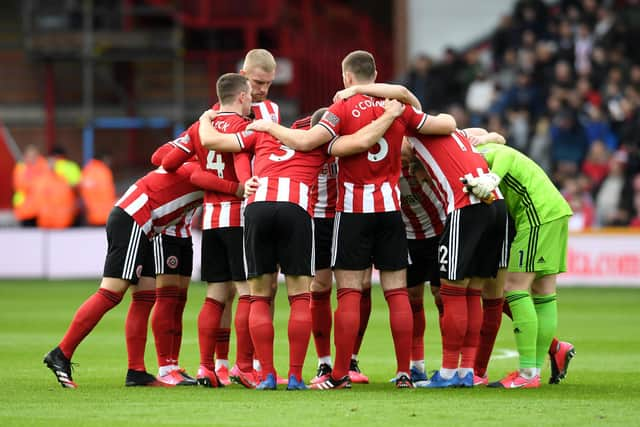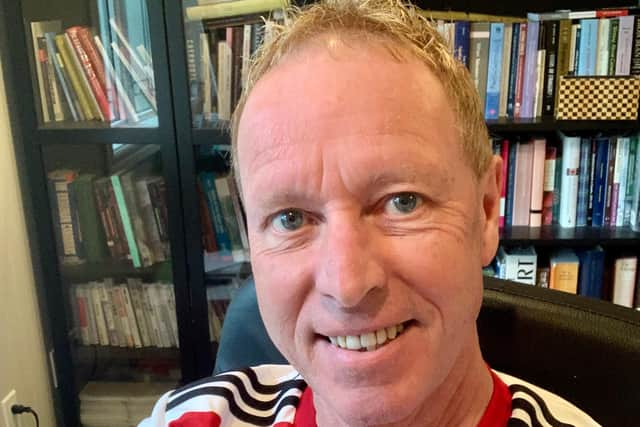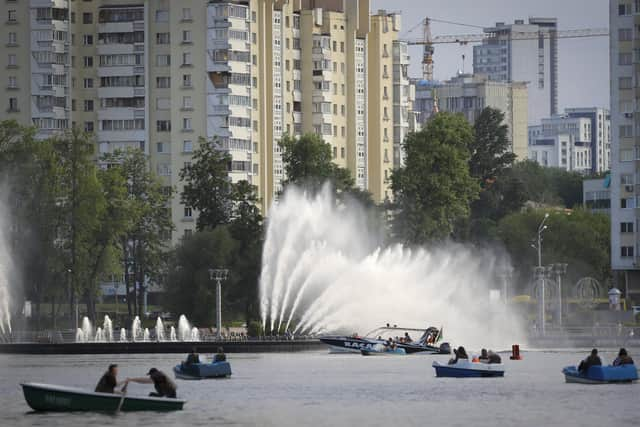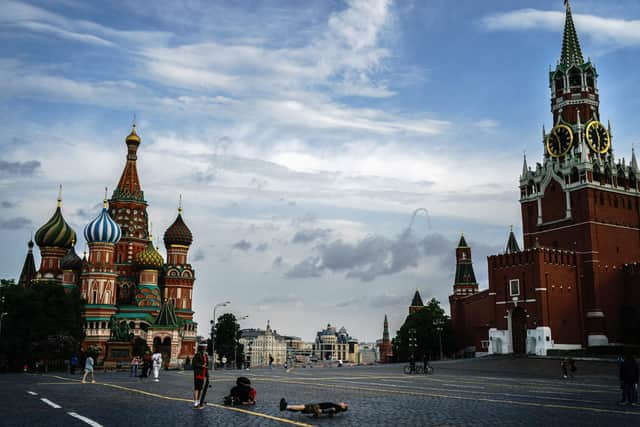Expert explains why Sheffield United are proving such a big hit with football fans from eastern Europe
and live on Freeview channel 276
A Distinguished Professor at the University of Alberta, Marples is a lifelong Sheffield United supporter too. So having followed their exploits closely since Chris Wilder’s appointment as manager, he is not surprised to discover the story of a club prospering against the odds has captured the imagination of football fans across eastern Europe.
“Belarus and European Russia are highly industrialised, with high urbanisation and working-class values,” Marples notes, drawing comparisons between the region and South Yorkshire. “Their teams rely on home-grown players because they lack funds to buy real stars. They have devoted fans but are small fry in the great European competitions. The story of Sheffield United is one of hope that a well-managed team operating on relatively slim resources can defy the odds and compete with those owned by Russian oligarchs, like Shakhtar Donetsk and Chelsea, without spending vast sums.
Advertisement
Hide AdAdvertisement
Hide Ad“Most fans in the region under discussion have salaries of under £237 pounds per month. Their heroes, at peak, receive about £4,000 per year. The success this year of unsung but vital players like John Lundstram and George Baldock are therefore appealing.”
Only a year after reaching the Premier League and three since being promoted from League One, United’s climb onto the cusp of the Champions League places had become a major talking point in English footballing circles before the season was suspended because of the Covid-19 pandemic. Three months on, and with Wilder’s squad preparing to resume its push for a top four finish at Aston Villa next week, The Star has reported how fans from places including St Petersburg, Kyiv, Moscow and Minsk have also become fascinated by United’s results under their former defender and the factors behind them.
In some cases, the explanation is obvious. Petr Katchuro, who recently spoke in glowing terms about both the club and its home city, spent four seasons at Bramall Lane in the Nineties before returning to his native Belarus. But in others, the reasons appear more esoteric. One supporter from Ukraine, revealing fans from Karpaty Lviv have invited their counterparts from United to enter an international football tournament, suspected the sight of Wilder’s side upsetting established superpowers appealed to the country’s sense of nationalism.
“Ukraine has gone through a tough period over the past six years, losing Crimea to a Russian invasion, facing pro-Russian separatists in the east, and generally being pushed around by a bigger, more aggressive, neighbour,” Marples agrees. “The country is not in NATO and though it gets some western aid, mainly from the USA, it has to stand alone and face these threats.
Advertisement
Hide AdAdvertisement
Hide Ad“United arrived in the Premier League with their homegrown players, facing teams with eight or nine internationals in the first-team squad, and in theory should have been overwhelmed.


“But they haven’t. With an astute manager and clever tactics, they found a way to succeed.”
Born in Chesterfield, Marples has supported United since the age of four; later becoming a regular on The Kop where he was hypnotised by the likes of Tony Currie, Len Badger and Alan Woodward.
“There were some really good times,” he remembers. “But also some bad. I think 1975-76 must have been the worst season we ever had, under Jimmy Sirrel.”
Advertisement
Hide AdAdvertisement
Hide AdAfter moving to Canada as a student, Marples became a leading academic. Specialising in Ukraine, Belarus and Russia - “I travel there often” - he is the author of over 20 books on subjects ranging from Stalinism and the Second World War to Lukashenko’s presidency.


Marples’ appreciation of societal and cultural sensibilities across Eurasia means he understands why United’s predominantly British and Irish squad, captained and managed by local lads made good, appeals to those who follow clubs also built around domestic talent.
“I don’t think incidentally that the Blades have any objection per se to foreign-born players, as bringing in Lys Mousset has demonstrated,” he continues. “But they are the side most obviously made up of home island players, the UK and Ireland.
“No other team in the Premier League looks like that, but plenty do in the lower divisions.
Advertisement
Hide AdAdvertisement
Hide Ad“Having said that, I deeply resented a Canadian newspaper describing United as ‘The Brexit Team.’ I am sure we will be happy to compete in Europe next season.”


Seventh in the table, United will move to within two points of fourth-placed Chelsea with only nine matches remaining if they win Wednesday evening’s contest at Villa Park - the first top-flight fixture since the campaign was mothballed in March. Gatecrashing the Champions League party - which is supposedly reserved for those with deeper pockets and bigger profiles - will introduce United to even larger audiences. Many of whom, Marples believes, will feel an emotional attachment to Wilder’s team.
“It’s been traditional in some quarters for locals there to follow the elite teams of Europe, which in England are seen as Manchester United and Liverpool,” he says. “But they do not appeal to all.
“In Belarus, for example, the story of Sheffield United is similar to that of BATE Barysau, or Borisov in Russian, who are named after a factory founded in the Seventies. They won some competitions, disbanded, and then made a triumphant return.
Advertisement
Hide AdAdvertisement
Hide Ad“The team’s attendance isn’t the biggest - nowhere near as big as we get - and their local stars often went on to bigger times. Alexander Hleb was one, who went to Stuttgart and then Arsenal.
“The Blades seem like that - moving up from League One and then doing so well in the Premier League this season despite all the predictions to the contrary.”
An important message:


